
We regularly come across new apps, maybe something that's a work in progress or available as a stable release, or it's just a lesser-known app.
In the last few years, I have come across many intriguing apps and services. Of course, it also counts as one of my job responsibilities while reviewing new things, or covering news at It's FOSS 😎
Not just for the sake of exploring, but I ended up using them in my daily life. So, why not share some of the ones that took me by surprise? Here we go:
1. Pomatez
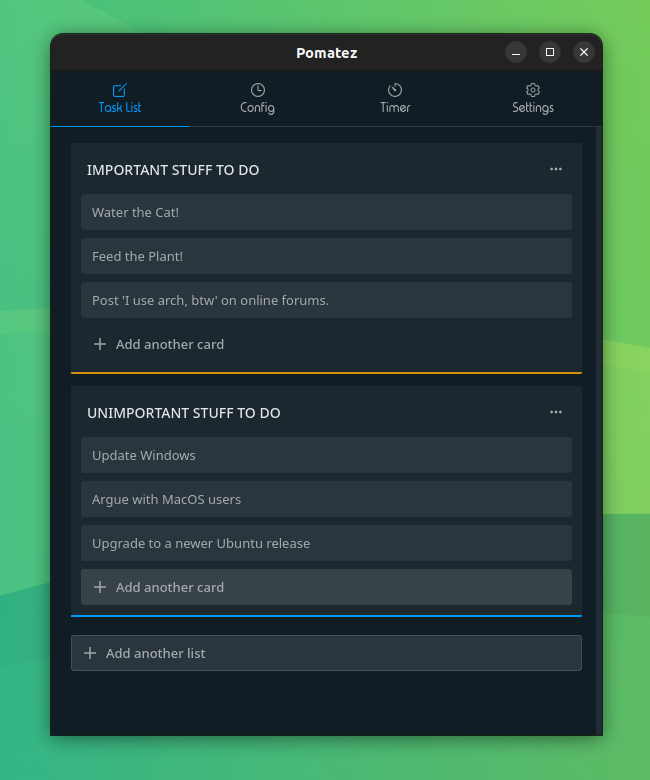
We begin with Pomatez, an app that helps you implement the “Pomodoro Technique” for time management. You set a timer to divide your work into different time intervals (usually 25 minutes) followed by short breaks, repeated until the task ends.
When I first came across this, I was surprised to see such an app existed for Linux featuring support for a time management technique. This a very handy app that will help you manage your time when you have many tasks to handle.
You can get it from its official website, with packages such as .deb, AppImage, and .rpm being available.
2. Denaro
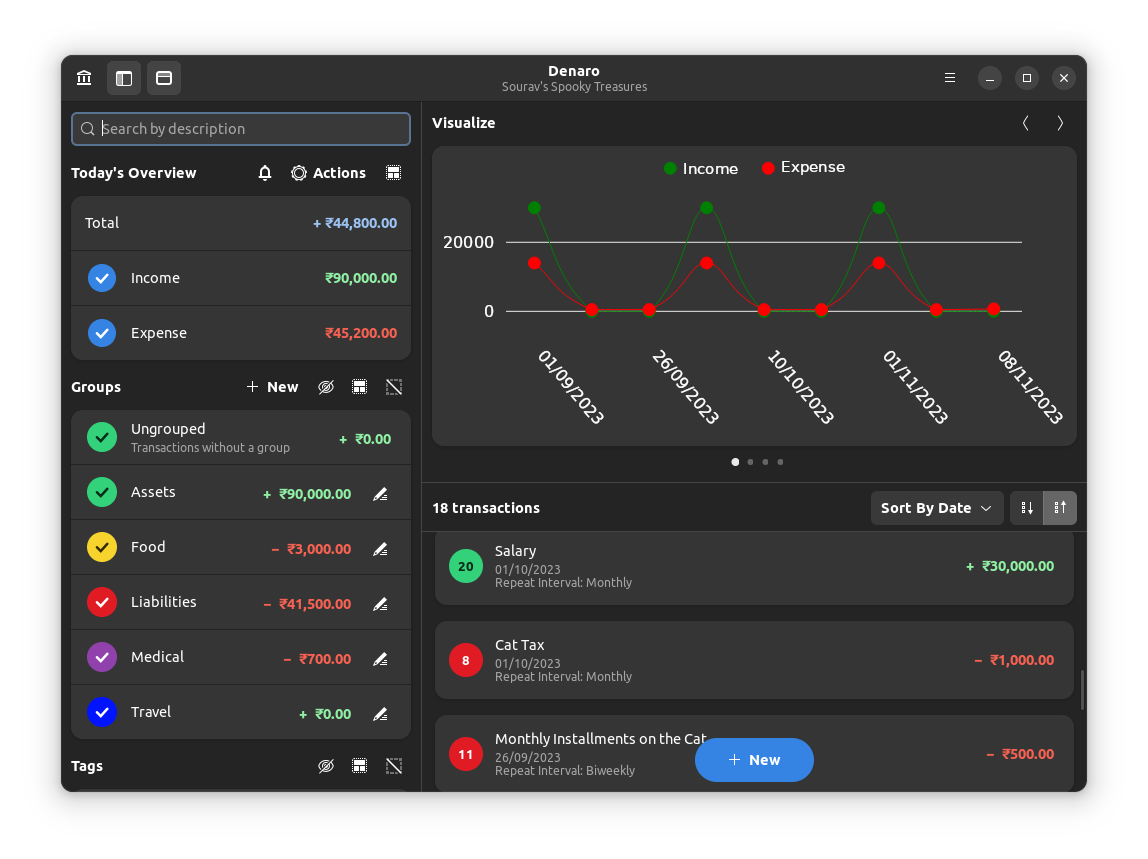
Denaro is a sleek-looking Linux app that makes managing personal finances an effortless task. With rising inflation, we have to keep our finances in check; otherwise we risk losing money that could be used to feed our plants and water our cats. Don't even get me started on the rising Cat tax. 😿
It is a neat personal finance app for Linux that impressed me with its features, and the best part is that everything is done locally, you don't need to create an account or store your data on the cloud.
You can get if from the Flathub store, Snap store, or AUR.
3. Beaver Notes
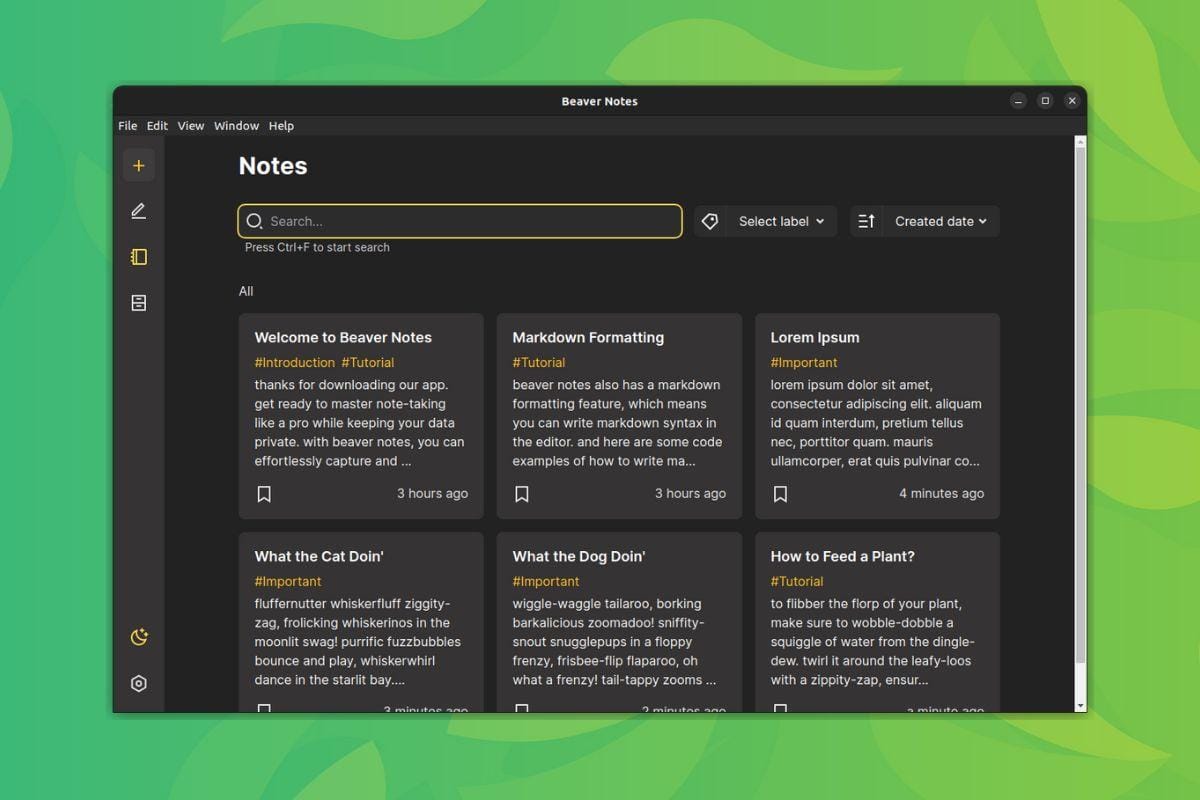
How about a privacy-focused note-taking app that stores notes locally?
Beaver Notes is an open-source, cross-platform note-taking app that just about neutralizes the risk of your data being leaked in a breach. You wouldn't want your secret recipe for cooking oatmeal out in the open, would you?
When I tried it out, I liked how all the things were organized in the app, be it the home screen, the note creation/editing experience or the markdown support. You can grab the latest release from the official website.
Suggested Read 📖

4. Xplorer
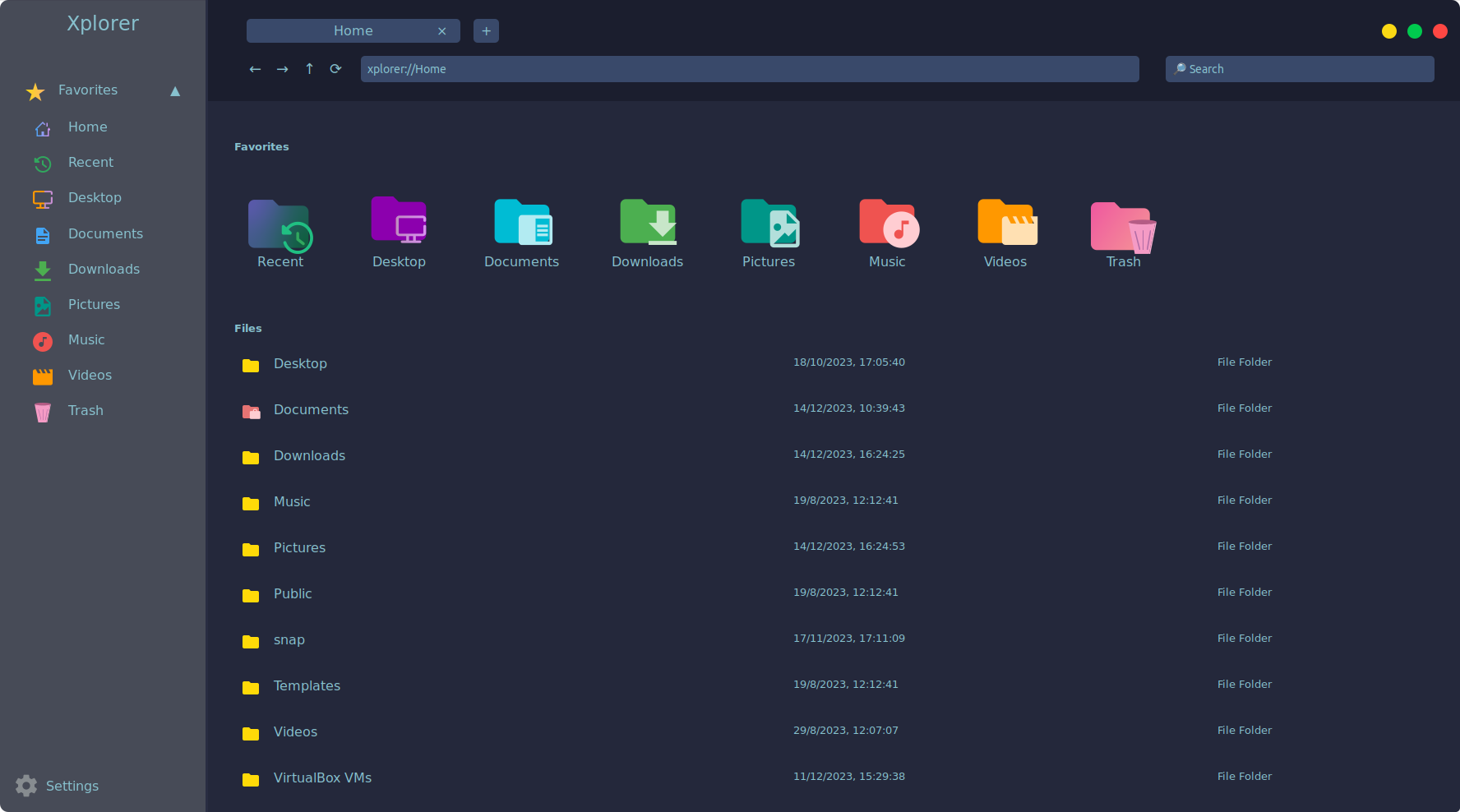
Xplorer is an open-source file manager that utilizes the Tauri framework and a Rust backend for providing a unique file management experience.
Sadly, its development has stalled due to the lead developer being busy with his studies. But, you can give it a try by getting it from GitHub.
This is for the tinkerers who want a different file management experience.
5. Warehouse

Warehouse is “a versatile toolbox” for managing Flatpak applications on a Linux system, it can be used to manage the user data, flatpak information, and even perform batch management of installed Flatpaks.
When I tried it out, I noticed that it was able to detect all the Flatpak apps on my system and let me tweak them. If you are interested, get it from the Flathub store.
Suggested Read 📖
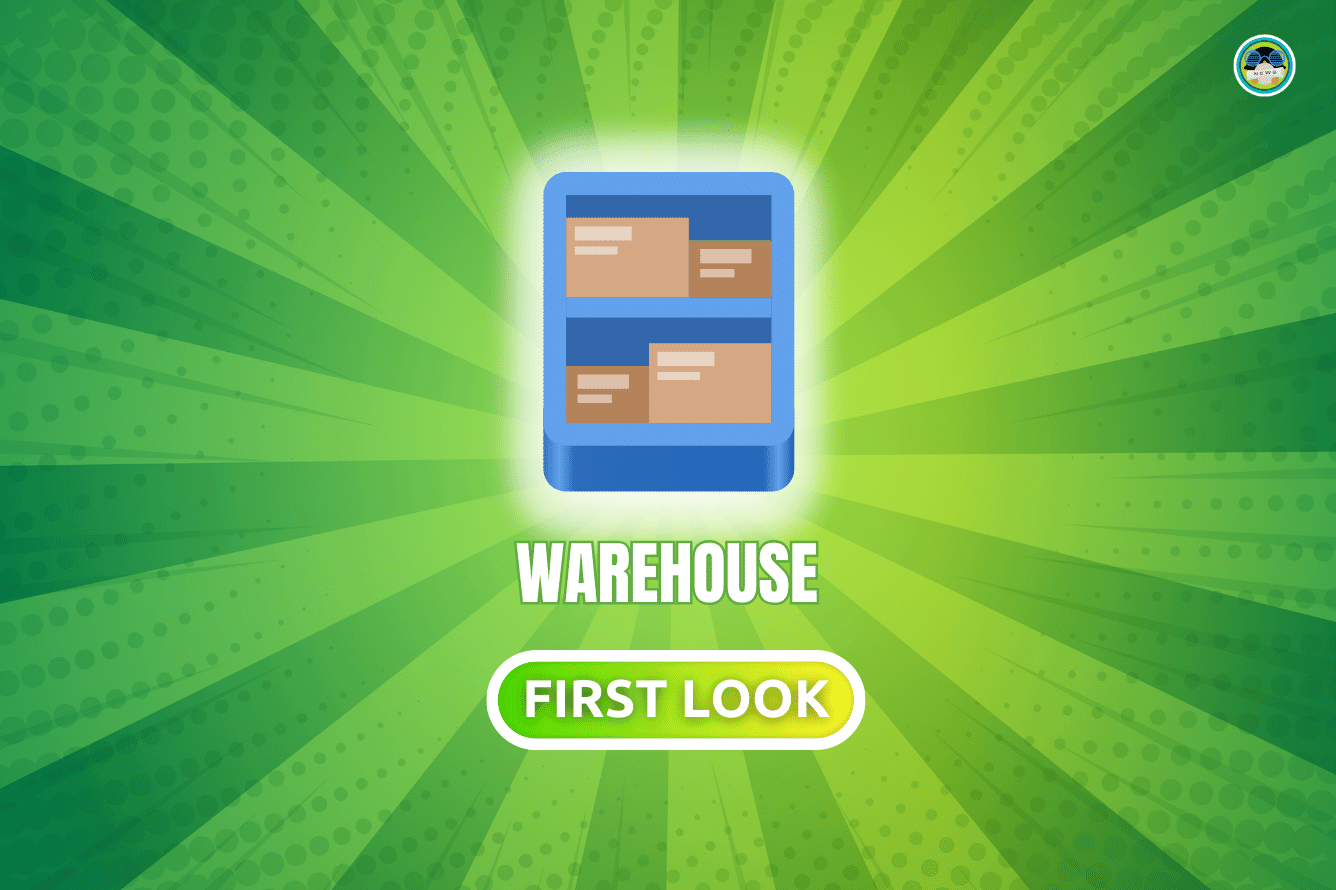
6. Mission Center
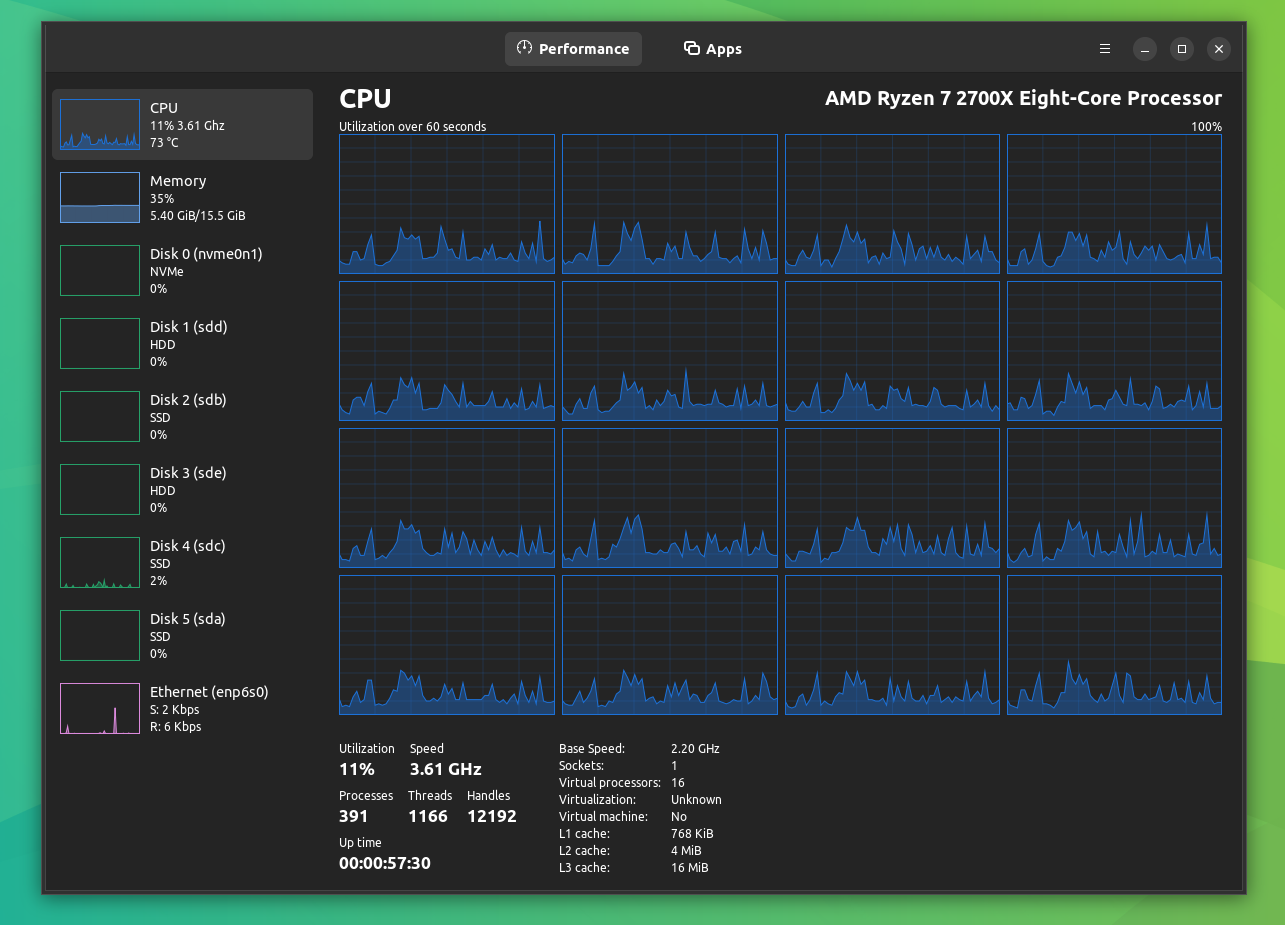
I always wanted a system monitor app that looked more like the task manager on Windows.
Enter Mission Center, a sleek and modern-looking system monitoring app for Linux that will make you say; Is it the Windows task manager?
Even though it takes plenty of inspiration from the Windows 11 task manager, it is a great option for users who want real-time monitoring of CPU usage, RAM, network, and more.
You can get it from the Flathub store.
7. Floorp
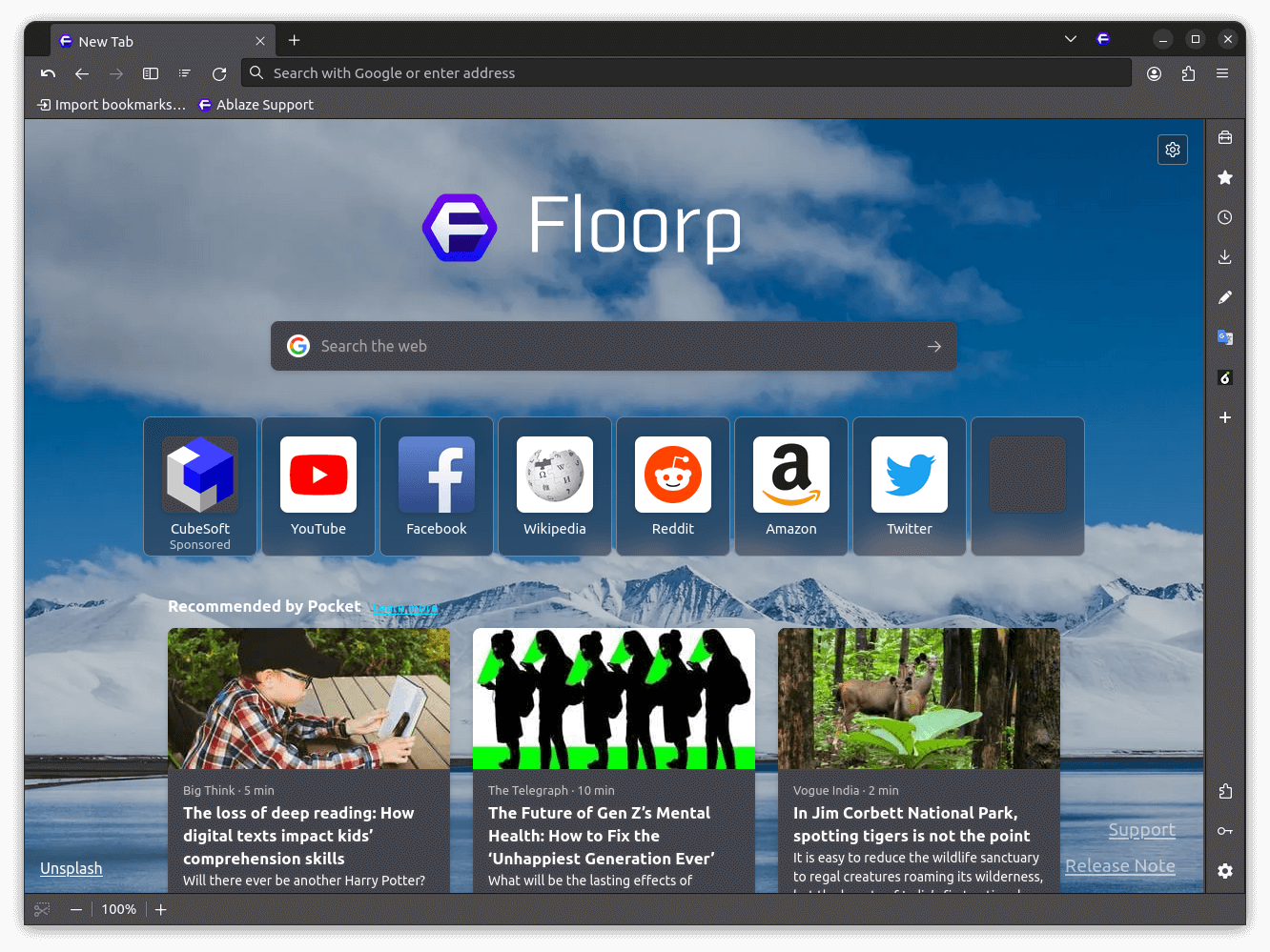
Looking for a lightweight Firefox alternative?
Well, then Floorp can be the one for you as it was built keeping privacy and user choice in mind. It is an open-source web-browser that has been forked from Firefox.
Even though the name might sound weird to you, don't let it distract you from the many neat features Floorp has to offer. I really liked the sidebar that gave me quick access to important menus, and even the ability to add WebApps to them.
Grab it from the Flathub store to get started.
Suggested Read 📖
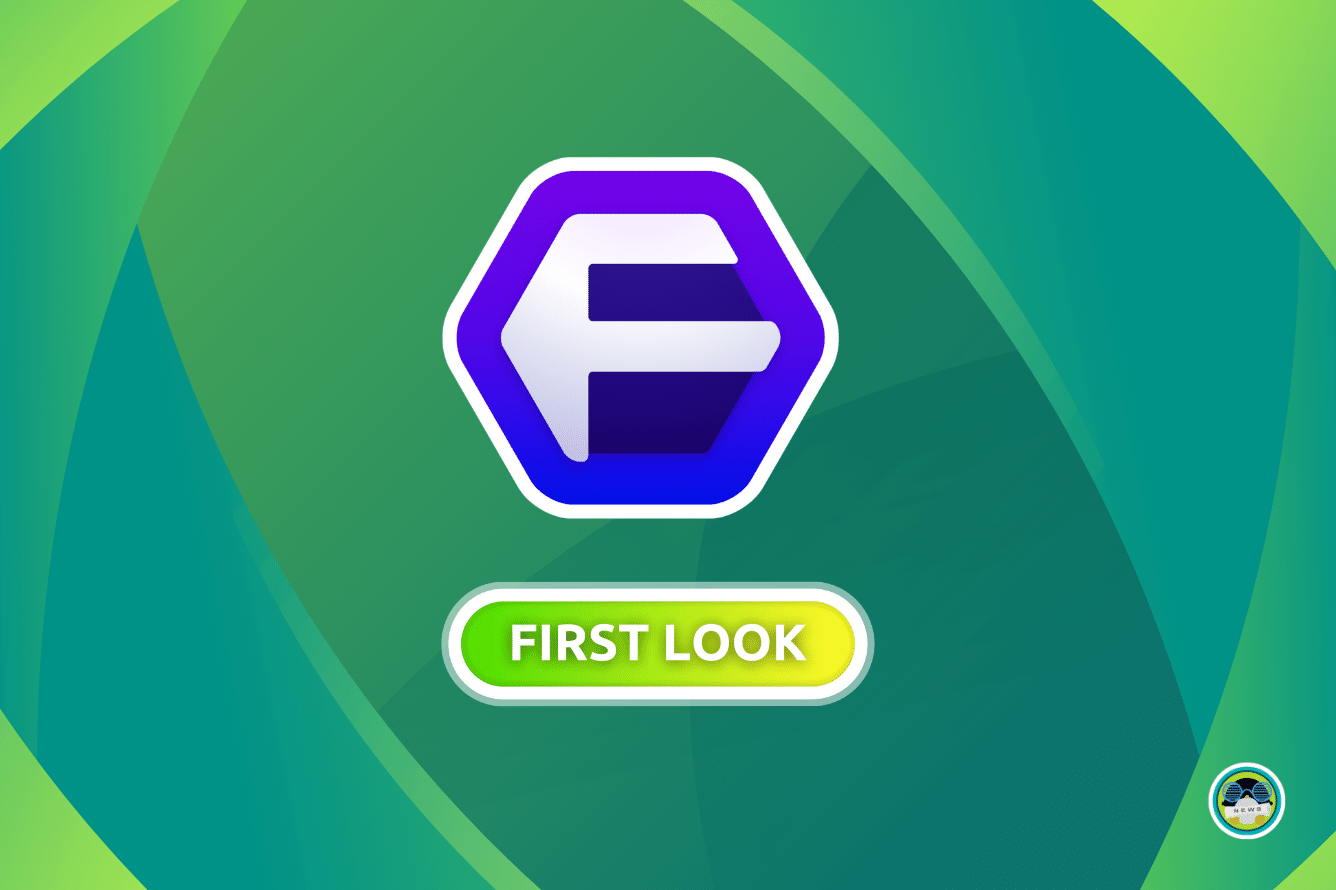
8. Reminders
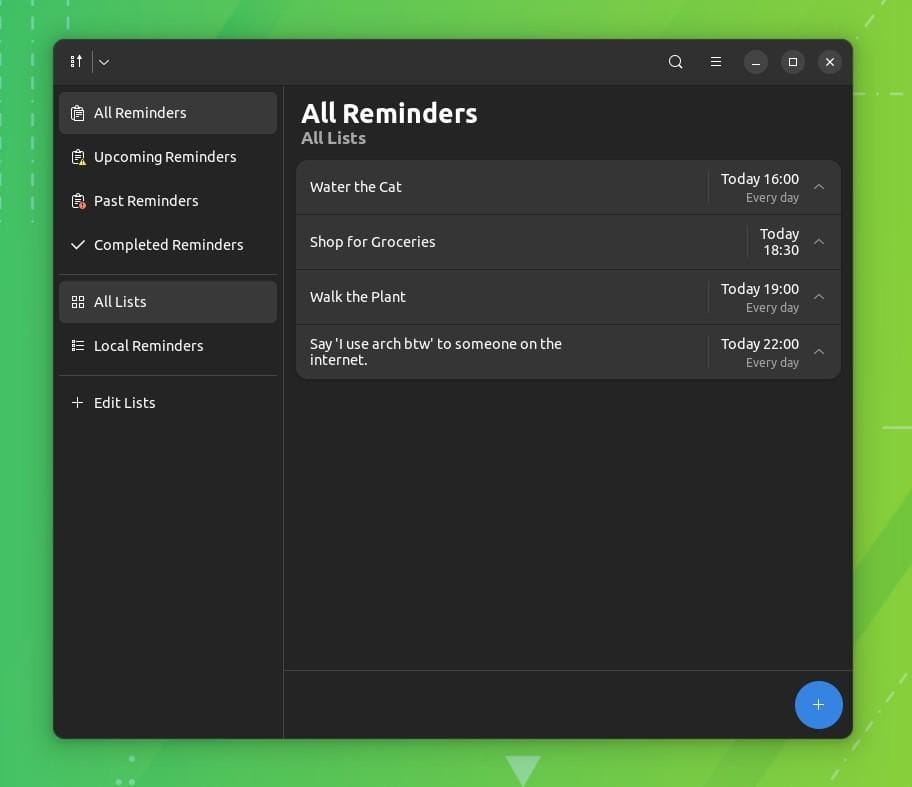
Reminders, an open-source reminder app for Linux that packs in some really useful features in a relatively compact package. One of my favorite apps built with simplicity in mind.
You can use it to create tasks and stay in line with what you want to get done with timely reminders notifying you of the tasks you set.
It is available on the Flathub store. For me, it ran well on my Ubuntu 22.04-equipped system, with proper notifications for tasks when the set time arrived.
💬 So, these were the apps that surprised me the most, I look forward to discovering more cool apps like these in the future. If you have any suggestions, feel free to add them in the comments below.
- Even the biggest players in the Linux world don't care about desktop Linux users. We do.
- We don't put informational content behind paywall. Your support keeps it open for everyone. Think of it like 'pay it forward'.
- Don't like ads? With the Plus membership, you get an ad-free reading experience.
- When millions of AI-generated content is being published daily, you read and learn from real human Linux users.
- It costs just $2 a month, less than the cost of your favorite burger.
Become a Plus Member today and join over 300 people in supporting our work.











